Coming up: From the Crisis Economy to the Care Economy with Ai-jen Poo
by Willow Hutchison
Care workers’ voices need to be heard. This is the message Ai-jen Poo, a next-generation labor leader and key strategist in the women’s movement, makes loud and clear. Ai-jen is a MacArthur “genius” fellow, one of Fortune’s 50 World’s Greatest Leaders, and one of TIME’s 100 Most Influential People in the World. Her work has also been featured in Vogue, Marie Claire, New York Times, Washington Post, and Jezebel, to name a few.
On Thursday, November 9th, Ai-jen Poo will be speaking about the shift from the “Crisis Economy to the Care Economy” at the University of Hawai‘i at Mānoa. Ai-jen is working to transform the care economy to ensure that families get the care they need–for kids, people with disabilities, and the elderly–while advocating for caregivers to have jobs with decent pay and dignity.
In just 12 years, Ai-jen has already changed the national conversation about care. She argues that caregiving is vital national infrastructure, and that taking care of each other allows us all to reach our full potential and makes the economy work for everyone.
What is Care Work?
Care work is the act of caring for children, family members, or the elderly. Women, not just in America but around the world, spend two to ten times more time on unpaid care than men do. This further perpetuates gender inequality. When it comes to paid caregiving jobs–one of the fastest growing segments of the labor market–women, and especially women of color, are also disproportionately represented, and systematically underpaid.
What is the Care Economy?
The care economy is central to the whole economy. All workers will need care at some point in their lives. We also need to be able to take care of others. Presently we do all of this alone, but we can do better together.
Ai-jen Poo’s Work
Being the Executive Director of the National Domestic Workers Alliance has allowed Ai-jen to look at the care economy holistically and initiate important changes. With her involvement, the National Domestic Workers Alliance was able to pass the Domestic Worker Bill of Rights in 10 states with the help of over 70 local affiliate organizations. Minimum wage protection was granted to over 2 million home care workers through this achievement.
In 2011, Ai-jen launched a campaign called Caring Across Generations that unites Americans and their families to gain access to the care they need. This brought about new groundbreaking policies like the nation’s first family caregiver benefit right here in Hawai’i, and also the first social care insurance fund for the long-term in Washington State.
Ai-Jen also has a book called the Age of Dignity: Preparing for the Elder Boom in a Changing America”. In it, she describes the shifting demographics of the country and the increasing need for care. She also explores the question of how we as a society can better prepare and support the quality of life for the rising number of older Americans. Ai-jen aims to discover effective solutions for this country to give back to those who are getting older, and this is seen in her work in policy change.
In her book, she explores personal stories and the experiences that are often hidden from older individuals, family caregivers, home care workers, and regular people who are involved in care work in one way or another. As she has said before, “care is the strategy and the solution towards a better future for all of us.”
In Hawai’i, the aloha spirit is always strong, and its vibrancy shines through its people. Our kuleana, which means “our duty” or “responsibility,” is to care for the Kupuna in our community. It has always been an integral part of island life to respect our elders, because of what they have done to make life possible for the keiki. Our grandparents play a huge role in our existence, and there is a closeness in Hawai‘i with Ohana unlike anywhere else. Our kuleana is the responsibility to show unwavering respect to those who have contributed to the growth and flourishing of the ‘aina over time. It is essential that we ensure a better future for those who made it possible for us to have one in the first place, which is exactly what Ai-jen sees.
Ai-jen is changing the way that care work is viewed and approached in both economic and social ways. By raising awareness about the core challenges to the country and to all of us, she is paving the way for a new type of care economy that prioritizes both the caregivers and those receiving support.
Want to learn more about Ai-jen Poo and her mission?
The Better Tomorrow Speaker Series is a joint venture of Hawai‘i Community Foundation, Kamehameha Schools, and the University of Hawai‘i at Mānoa. Additional series sponsors include the Ulupono Initiative, and the Scholars Strategy Network.
Lead Event Sponsor: Hawaiʻi Children’s Action Network.





